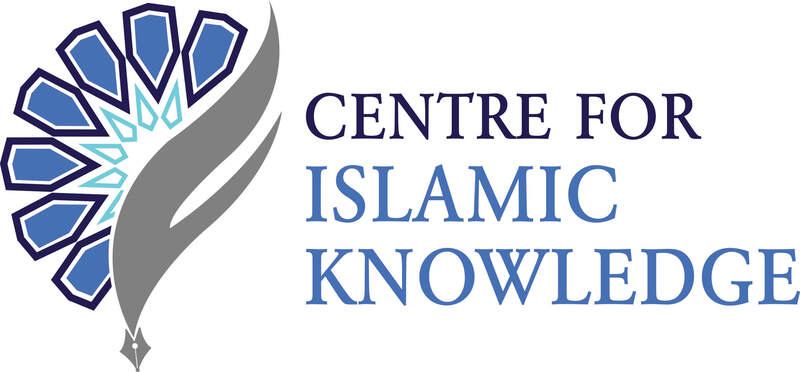The Foundations Program in Islamic Studies offers students a rich journey into the Islamic scholarly tradition, providing essential knowledge and wisdom to live a life pleasing to our Lord. It consists of four cornerstone courses: Islamic Theology - Aqidah, Sirah and Islamic History, Islamic Jurisprudence - Fiqh, and an integrated course on the sciences of the Qur’an and Hadith preservation. These courses aim to deepen students' understanding, strengthen their faith, and lead them towards a fulfilling spiritual and intellectual life.
Class Timings: Sundays from 10 AM to 12 PM
Tuition: *$800 for the entire program (bundle of four courses) or $250 per course
Certificate Requirements: The successful completion of four courses
Prerequisites: None
Recommended age level: 18+
Delivery Mode: Onsite (Online is available on as per-need basis)
Language of Instruction: English
Refund Policy
*We firmly believe that financial constraints should never be a barrier to knowledge. If you require assistance, we invite you to get in touch with us at [email protected] to obtain information about our scholarship programs designed to provide financial support to those in need.
Tuition: *$800 for the entire program (bundle of four courses) or $250 per course
Certificate Requirements: The successful completion of four courses
Prerequisites: None
Recommended age level: 18+
Delivery Mode: Onsite (Online is available on as per-need basis)
Language of Instruction: English
Refund Policy
*We firmly believe that financial constraints should never be a barrier to knowledge. If you require assistance, we invite you to get in touch with us at [email protected] to obtain information about our scholarship programs designed to provide financial support to those in need.
Modules:
Islamic Theology - Aqidah
This course offers an introduction to the foundational beliefs and principles of Islamic theology (Aqidah) as understood by Ahl al-Sunnah (the Sunni tradition). Students will learn the essential beliefs about Allah, the divine attributes, the divine decree, Prophets, Scriptures, Angels, and life after death.
Sirah and Islamic History
This course provides a study of the life and teachings of Prophet Muhammad (SAW) and the early Muslim community. It explores key events such as the emigration to Habasha, the migration to Medina, establishment of the Muslim community, and significant battles like Badr, Uhud, and the Trenches. Additionally, it covers the final Sermon of the Prophet, the emergence of the Muslim community after his passing, and the subsequent Khilafas of Abu Bakr, Umar, Uthman, and Ali, as well as the dynasties of Banu Umayyah, Banu Abbas, and the Ottomans.
Islamic Jurisprudence - Fiqh
This course provides an examination of Fiqh al-'Ibadat (Jurisprudence pertaining to Worship) and Fiqh al-Mu'amalat (Jurisprudence concerning Social Transactions), imparting knowledge on the Islamic principles that guide acts of worship and daily interactions. Subjects covered include Taharah (purification), the performance of Salah (prayer), the observance of Sawm (fasting), the giving of Zakah (obligatory charity), and the Shariah principles governing financial dealings, as well as the rules surrounding Nikah/Talaq (marriage/divorce). The curriculum also offers a concise introduction to Usul al-Fiqh (Foundations of Islamic Jurisprudence) and Maqasid al-Shariah (Objectives of Islamic Law), providing students with a foundational comprehension of the legal theories and objectives that inform the formulation of Islamic jurisprudence.
Qurʾanic & Hadith Sciences
This introductory course provides an overview of the foundational sciences of the Quran and Hadith, essential for any student beginning their journey in Islamic studies.
Part I: Quranic Sciences Students will explore the multifaceted world of Quranic studies, starting with the proper etiquette (adab) when engaging with the Quran. The course will cover the rich history of the Quran, tracing its revelation, compilation, and preservation. Students will delve into the various readings (qira'at) of the Quran, understanding their origins and significance. The concept of abrogation (naskh) in the Quran will be examined, providing insights into its application and implications. Finally, students will explore different approaches in Quranic exegesis (tafsir), learning how scholars have interpreted the Quran throughout history.
Part II: Hadith Sciences The second part of the course introduces students to the science of hadith criticism (mustalah al-hadith), a crucial discipline for verifying the authenticity of prophetic traditions. Students will study the unique features and contributions of each of the Six Books of hadith (Kutub al-Sittah), which are central to Sunni Islam. This includes an overview of the methodologies employed by the compilers and the criteria used to assess the reliability of hadith narrations.
Part I: Quranic Sciences Students will explore the multifaceted world of Quranic studies, starting with the proper etiquette (adab) when engaging with the Quran. The course will cover the rich history of the Quran, tracing its revelation, compilation, and preservation. Students will delve into the various readings (qira'at) of the Quran, understanding their origins and significance. The concept of abrogation (naskh) in the Quran will be examined, providing insights into its application and implications. Finally, students will explore different approaches in Quranic exegesis (tafsir), learning how scholars have interpreted the Quran throughout history.
Part II: Hadith Sciences The second part of the course introduces students to the science of hadith criticism (mustalah al-hadith), a crucial discipline for verifying the authenticity of prophetic traditions. Students will study the unique features and contributions of each of the Six Books of hadith (Kutub al-Sittah), which are central to Sunni Islam. This includes an overview of the methodologies employed by the compilers and the criteria used to assess the reliability of hadith narrations.

